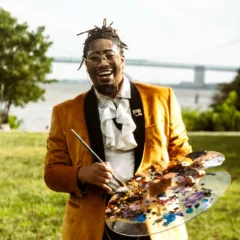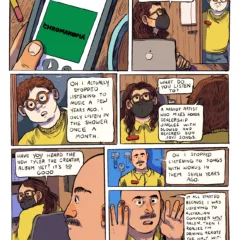[Donald enjoys a meaningful concert from world-famous musician Bilal. What can you expect from Bilal’s new album? Read on. — the Artblog editors]
Remember that wild classmate who always created a ruckus throughout your adolescence? Well, many of those kids have since matured and conformed to a more typical identity. This is not the case with Bilal. Tuesday, June 30 at World Cafe Live served as a homecoming of sorts for the 35-year-old singer-songwriter (an alum of CAPA and the New School for Jazz and Contemporary Music). He returned to Philadelphia for a special CD release show of his brand-new album, In Another Life, which was released the prior day.
Bilal’s background
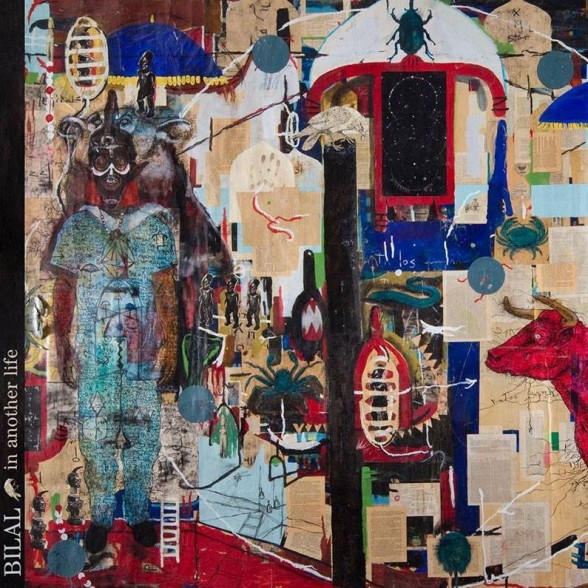
Since its release, In Another Life has garnered an enthusiastic reception from critics (it currently has a rating of 77 on Metacritic). Bilal fans can also hear his voice on two tracks on Kendrick Lamar’s 2015 album To Pimp a Butterfly, an album that is widely considered to be the finest hip-hop album of the millennium thus far. I chose to sample each track from Bilal’s new album prior to the concert instead of listening to the full tracks–so that I could experience the concert with fresh ears. By the concert’s end, I found that previewing the tracks in this fashion allowed me to have a good idea of what to expect while still being surprised!
Soul singer Temika Moore (another CAPA alum) opened the concert with her originals and covers of such classics as Michael Jackson’s “Off The Wall” and Chaka Khan’s “Ain’t Nobody”. Moore brought a spiritual quality to her original material, with “I’m Not OK” and “Let It Go” among the best of the songs she performed. Of the latter, she said, “Whatever you have carried over from 2014 into 2015 needs to be released. Let it go.” One might have expected the opening act to have more bite than Moore, but her clean voice and positive energy made it a joyful experience.
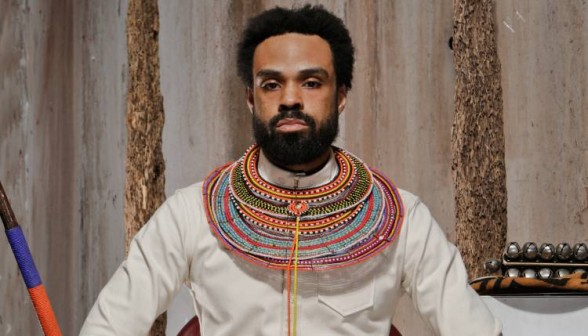
Bilal arrived on stage with an intense spirit of social protest, delivering a dialogue to his audience on the recent events surrounding the Baltimore riots and Charleston shooting. With this came spiraling tremolos from the keyboards that built up into “Star Now”. The keyboard had a twilight sound to it, and the instrumental accompaniment was reminiscent of a classic Jay-Z track. “Show the world that you’re a star now,” Bilal sang as he delivered a futuristic, almost whispery vocal on the song.
In his performance of lead single “Satellites,” he brought to light the poverty and mental illness that is more present than ever before in the country. The lyric that sticks with you is “What did we do, what can we do, and how did this happen?” It has a chilled-out acoustic flair that served as a nice break from the other aggressive, confrontational songs. “Open Up the Door” and “I Really Don’t Care” channel the greatness of Marvin Gaye’s What’s Going On (1971) in blending soulful melodies with social commentary.
Truthful and fearless
Each song on the setlist had a completely different stylistic feel from the previous one, but it was clear that Bilal’s home base is singing from his soul. In the songs that had more of a hard-rock edge, the band overpowered him at times.
Near the end of the show, there was an extended drum solo with an unpredictable growing and decreasing tempo. As the tempo of the solo slowed down, Bilal used vocal effects on his microphone to create sinister laughs. Although this struck me as being somewhat random, it was a moment in the show when it crossed over into being performance art.
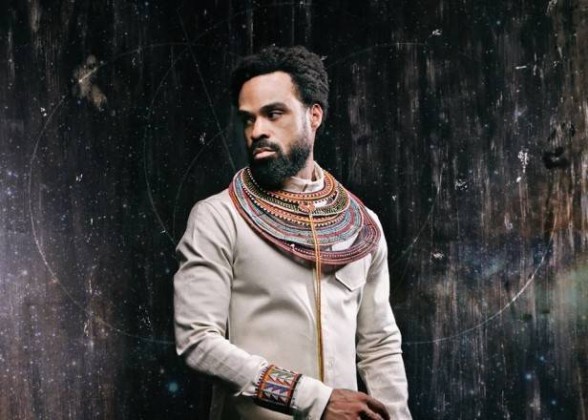
What I appreciate most about Bilal’s voice is his vibrato, ringing falsetto, and how he creates a character for each song. He has a fearless stage presence and is totally in his own skin–other people’s opinions don’t seem to hold much merit. Bilal is a wonderful role model for our emerging Philadelphia artists because of this very fact: our artists know that they must produce art that needs to be heard instead of what is easy to be heard. Sometimes the best music happens to have too much truth to be accepted by a wide audience. Bilal shows us that no matter the audience that shows up, he’s going to deliver music we really need to hear.
For more information on Bilal, visit his Twitter page @Bilal.


